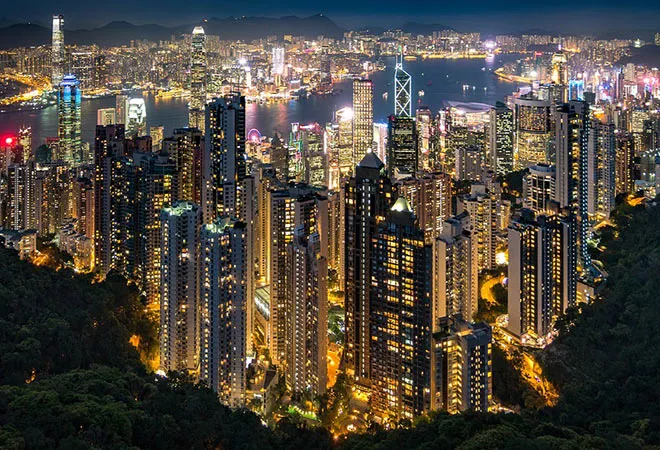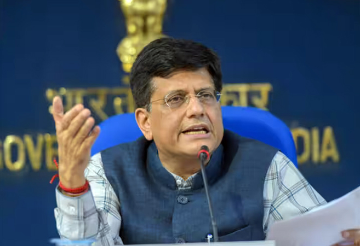
The annual conclave of the National People’s Congress and the Chinese People’s Political Consultative Conference is a marquee event in China’s political calendar. This year, the gathering assumed importance as it came in the run up to the 2022 National Congress that will name its top leadership. Besides approving the 14th Five-Year Plan and a master plan for economic development till 2035, China’s parliament adopted a resolution to tweak Hong Kong’s (HK) electoral system to ensure that only “patriots” can run for public office.
While Xi Jinping’s Chinese Communist Party (CCP) has abandoned Deng Xiaoping’s guiding tenets in other arenas, it has embraced his “patriot principle” in connection with the city-state’s governance. While conferring with a delegation from Hong Kong while the negotiations for the handover from the UK were in progress in the 1980s, Deng said he wanted patriots at the helm of the island’s affairs. He had defined such people as having respect for the Chinese nation, those who supported the mainland’s resumption of sovereignty over the island, and those who desired a stable and prosperous HK. “Those who meet these requirements are patriots… We don’t demand that they be in favour of China’s socialist system,” he had asserted.
When HK reverted to Chinese control under the 1984 Sino-British joint declaration, the treaty mandated retention of HK’s economy and common law legal system till 2047. Under the rejig, the ‘Election Committee’, which is tasked with selecting HK’s chief executive, will nominate Legislative Council (LegCo) candidates. The election committee will also be expanded to 1,500 members from the current 1,200. The extra 300 seats on the election panel will be filled up by the National People’s Congress and the Chinese People’s Political Consultative Conference.
Chan Hiu-fung, a deputy of the National People's Congress, argues that, “Some elements were using the election campaigning to spread ideas about the nation’s breakup, or to overthrow governments in Hong Kong and China.” There has been strong resistance to the introduction of an extradition law that would have resulted in Hong Kong residents facing trial in the mainland in 2019. And in 2020 many saw the CCP’s move to promulgate a national security legislation for HK as a threat to their political freedom and civil liberties. It is ironic that at the time of the handover in 1997, Hong Kongers who had never lived under the CCP’s reign rejoiced, while nearly two decades later, a generation that had few memories of British rule over the island hoist the Union Jack flag inside the LegCo as a form of protest. In 1997, in a survey to determine the identity of people on the island, it was revealed that the number of respondents who identified themselves as “Chinese” were nearly one in five; in 2019, less than one in 10 asserted that they were exclusively Chinese. The bottom line is that the rise of the Hong Konger identity is a real challenge to the CCP.
The Hong Kongers resent the increasing intervention of the mainland in its affairs, from education to the economy. Beijing has been seeking greater integration with Hong Kong’s economy, a sentiment echoed by some even on the island like David Wong Yau Kar, a National People’s Congress deputy from the city-state and member of the Basic Law Promotion Committee. The mainland’s ‘Greater Bay Area’ project seeks to link Hong Kong and cities in Guangdong province into a more interconnected economic zone. However, there has been resistance to the same and other spinoffs like the proposal to reclaim land for public housing and infrastructure around HK’s largest island, Lantau, due to ecological concerns. In November 2020, after a spate of expulsions and resignations of oppositions members from the LegCo, the Hong Kong government put the project on the front burner with the city-state Chief Executive Carrie Lam pushing for Lantau’s development in her key policy speech.
The Liaison Office of the Central People’s Government in HK, which serves as a link between Beijing and the city-state, controls publishing houses through a company called ‘Guangdong Xin Wenhua’. The Liaison Office has tried to mould the narrative on the protests in HK through its media assets. In June 2020, Wen Wei Po, a Chinese-language newspaper in HK stated that it had received complaints from readers that public libraries had books that openly promoted the city-state’s independence. Former LegCo member Wang Guoxing alleged that the books fomented hatred and secession and urged that they be taken off the shelves. Following this, the Hong Kong’s Leisure and Cultural Services Department reviewed its collection.
While on the one hand, Beijing seeks to paint the protests in the city-state as the handiwork of anti-China forces, on the other hand, Hong Kongers see the CCP’s political mobilisation during the demonstrations as the work of cultural groups formed by those who migrated to the island from provinces on the mainland. A month before the national security law was promulgated in the city-state, office bearers of the Fujian Association of Societies in HK met top CCP and government officials, including Fujian CCP chief Yu Weiguo and Governor Tang Dengjie on a visit to the mainland. Moreover, the association pledged their support to the government in the special administrative region. This has heightened suspicions about mainland Chinese people among Hong Kongers and clashes have been reported in HK between natives from Fujian and the demonstrators at the height of the 2019 demonstrations, especially in the North Point district. The Fujianese community also hit the streets to back the Hong Kong police’s action against demonstrators.
While on the one hand, Beijing seeks to paint the protests in the city-state as the handiwork of anti-China forces, on the other hand, Hong Kongers see the CCP’s political mobilisation during the demonstrations as the work of cultural groups formed by those who migrated to the island from provinces on the mainland
Beijing’s answer to counter rising subnationalist sentiment has been to moot greater political mobilisation via education. ‘Catch them young’ seems to be CCP’s mantra, and classrooms are the new political laboratory. Annie Wu Suk-ching, a member of the Standing Committee of the Chinese People’s Political Consultative Conference, has sought greater emphasis on teaching Chinese history in educational institutes on the island. A question in a 2020 exam for Hong Kong’s university admissions seeking arguments on ‘Japan’s contributions to China in the 20th century’ caused a public outcry in the mainland. In 2019, new guidelines were issued for political mobilisation under the ‘Xi Jinping Thought’ like creation of “national consciousness” in schools and greater outreach of Communist Youth League on campuses. The Hong Kong Education Bureau’s new regulations mandate that schoolchildren be imparted lessons on violations of national security law. Educational institutes have been directed to monitor pupils’ conduct and report any support for the pro-democracy stir. It is clear that the CCP perceives Hong Kong’s education system as a legacy of colonial rule; hence efforts are being taken to supplant it with an education system with “Chinese characteristics”. Ever since the new national security law has been enacted, Hong Kong has been losing its status as a preferred destination for students, with the Chinese University of Hong Kong and University of Hong Kong saying that there has been a decrease in student applications.
At the 2019 Plenum, a conclave of top CCP officials resolved to upgrade China’s governance system and capacity, which included improving the legal system and enforcement apparatus for the maintenance of national security in HK and Macao. While the CCP celebrates its centenary this year, Xi’s desire to wrest a third term as the CCP’s General Secretary rests on his political consolidation. Protests by pro-democracy activists and popular support for them in the city-state put a question mark on the same. However, Beijing’s response to this subnationalism has been to enervate political institutions like the LegCo and to promote greater ideological conformity on campuses. It is widely acknowledged that HK’s economic success is attributed to its ‘laissez faire’ approach towards business and society. Its British colonial legacy ensured protection for property rights and civil liberties by an even-handed judicial system. As of August 2019, around 1,500 multinational firms had their regional head offices on the island, with its share market being the globe’s fourth largest after bourses in China and Tokyo. The CCP is weakening the pillars that have contributed to Hong Kong’s triumph—like its political structure and human capital formation. In the long run, Xi wants a society that is easier to administer, but if its Gen Next were to be less competent to develop critical thinking, it would certainly impair Hong Kong. With the CCP extending its grip over the territory with changes to the electoral and education systems, a conjecture emerges whether or not its legal system will be the next target. Foreign judges preside over the bench in Hong Kong. Insinuations have been made in pro-CCP media outlets regarding them. A newspaper hinted that a judge had a soft spot for violent demonstrators after he acquitted them, finding the police officials’ testimony untrustworthy.
The CCP is weakening the pillars that have contributed to Hong Kong’s triumph—like its political structure and human capital formation. In the long run, Xi wants a society that is easier to administer, but if its Gen Next were to be less competent to develop critical thinking, it would certainly impair Hong Kong
Until now, the supremacy of rule of law has drawn droves of multinational firms, talent, and investment that has made HK one of the world’s leading cities. Any attempt to remodel an institution—which constitutes the sinews of this global hub for commerce—based on the mainland’s opaque courts will wound HK.
The views expressed above belong to the author(s). ORF research and analyses now available on Telegram! Click here to access our curated content — blogs, longforms and interviews.




 PREV
PREV


